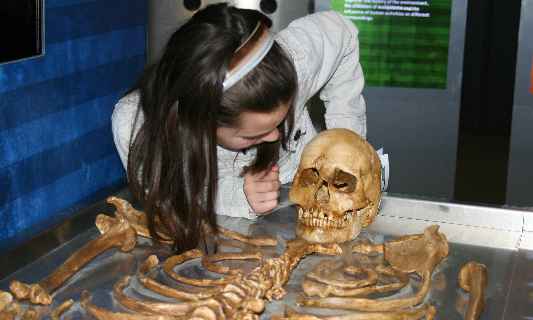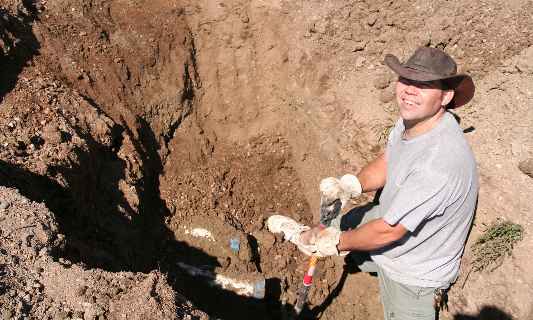Anthropologist
Who Is An Anthropologist?
An anthropologist is a person who studies human beings and how they live. They are like detectives, trying to figure out how people have lived in the past and how they live now. Just like how you might study insects or animals, anthropologists study people. They look at things like how we talk to each other, what we eat, and how we celebrate important events.
Sometimes, anthropologists even travel to different countries to study people from different cultures. They might live with them for a while to learn more about their customs and traditions.
Being an anthropologist is a very cool job because you get to learn about all kinds of different people and how they live. Plus, you might even get to travel to some really interesting places!
Roles & Responsibilities
Working with people and focusing on culture, which includes customs and beliefs. If you specialise in socio-cultural anthropology, you will mainly study society and culture. You will understand patterns of culture, diversity and beliefs.
Studying, analysing and researching on human anatomy. If you specialise in physical anthropology, you will understand the causes of human diversity. It is often an interdisciplinary subject that can be combined with biology, psychology, sociology, palaeontology, medicine, psychology, sociology, medicine and more.
Researching and understanding cultures and the historical relevance of humans, with no records. This includes learning about everything, from human evolution to modern developments in society.
Discussing and studying human culture. You will have in-depth conversations with other anthropologists on the formation and evolution of human culture over time and how humans have adapted to changes.
Studying how language influences and affects culture, social interactions and cultural identity. This helps you understand why some languages are favoured over others, and why different geographical regions have different accents. It also gives you an in-depth understanding of gender linguistic differences and how values can be communicated through language.
Applying anthropological data, theory and methods to assess and resolve social issues. Your findings will help you predict patterns in human behaviour and use them to solve current social issues.
Collecting information for group studying and assessing programmes meant to influence human social behaviour. Organisations looking to influence human behaviour towards productive change will need your talents. This requires studying human behaviour in detail and predicting how to bring about effective change.
Take the Mentoria career assessment, to find out how well-suited you are as an Anthropologist.
Discover your Ideal future
Get expert guidance and mentorship towards your perfect fit.
What Skills Will I Need To Have To Do This Job Well?
As exciting as this sounds, there are some things you’ll need to learn to do the job right:
COMMUNICATION SKILLS
Effective communication is key to this branch of studies so that you can adequately convey relevant insights from your findings.
COMPREHENSION SKILLS
Sound reading skills will help you understand and analyse reading material related to work documents, and spot patterns in the evolution of human behaviour.
LISTENING SKILLS
While discussing theories with fellow anthropologists, you should be able to grasp what others are saying, understand their points and ask relevant questions without interrupting at all times.
SYSTEMATIC ANALYSIS
Analytical skills will help you obtain efficient outcomes from the data gathered. This is especially helpful when you’re working with organisations to influence or change human behavioural patterns.
What Will My Workplace Look Like?
You can work as a researcher or teacher of anthropology in research laboratories and departments of anthropology. As an anthropologist, you can also work in other related departments such as schools of medicine, epidemiology, public health, ethnic studies, cultural studies, linguistics, education, psychology and neuroscience.
As a corporate anthropologist, you will be involved in market research to examine consumer behaviour. You will use your research skills to talk to consumers and interact with technology users to know how to improve products and services to enhance the needs of consumers.
Many government agencies need anthropologists for planning, researching and managerial work. Forensic anthropologists can work in law enforcement agencies and museums.
Anthropologists work with community-based organisations and development banks for research and social policy. YMCA and environmental organisations also hire them for research and analysis.
As an anthropology graduate, you could also pursue a career in advertising, conservation, health and social work, heritage management, museums, and sales and marketing.
How Much Will I Get Paid?
The exact amount will depend on your skill-set, experience and the branch of anthropology you choose to pursue.
A fresher can expect between INR 12,000 to INR 13,000 per month. The funding for your research could come from national and international funding agencies. If you work for international development agencies, you can get higher pays, perks and other benefits. Your salary will also increase with experience and reputation.
Okay, I'm sold. This is amazing

STEP 1: Class XI-XII/Junior College
Choose the science stream and study biology after Class 10. You will need a minimum of 50% marks to pursue this course.

STEP 2: Graduation
You can get a bachelor’s degree in Anthropology from a reputed university.

STEP 3: Post-graduation
If you wish to study further, you could pursue a master’s degree in Anthropology. The duration of the course is two years. A postgraduate degree helps you get better jobs and earn more money. You could pursue your post-graduation in India or abroad. Many universities abroad also offer niche courses in this field.

STEP 4: Land a Job
After completing your education, join a corporate, NGO, research agency, government organisation, legislative agency or development bank and world-renowned organisations like UNICEF, World Bank or more. You may also opt for further studies like a doctorate or PhD in Anthropology.
Congratulations, you are now officially an anthropologist!
Sign Up for Mentoria - India’s Most Reliable Career Discovery Platform
Mentoria promises to handhold you during your career discovery journey - from the time you sign up until you get into a career you love.
Discover your Ideal future
Get expert guidance and mentorship towards your perfect fit.


